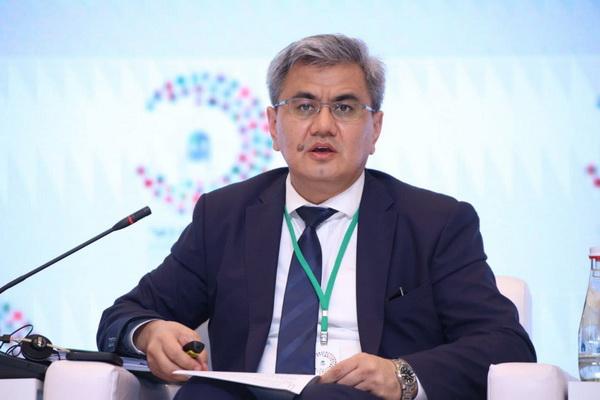
Social and economic recovery of the countries of the Central Asian region after the pandemic
Tashkent, Uzbekistan (UzDaily.com) - Director of the Center for Economic Research and Reforms (CERR) Obid Khakimov spoke at a panel session as part of the annual meeting of the Board of Governors of the Islamic Development Bank (IDB) in Tashkent.
From 1 to 4 September, the annual meeting of the Board of Governors of the Islamic Development Bank (IDB) is being held at the International Congress Center in Tashkent. To participate in the event, ministers and officials from 57 countries participating in the IDB group, as well as more than 2,000 large business participants, experts and media representatives, arrived in Uzbekistan.
The main topic of the meeting is the social and economic recovery of the IDB participating countries after the pandemic. In addition to the main events, additional sessions will be held on the topics of economics, sustainable development, health care, education, Islamic finance.
Director of the Center for Economic Research and Reforms Obid Khakimov made a presentation at the event.
“The countries of Central Asia have great potential for closer ties and integration interaction. Calculations show that there is an unrealized export potential of the CA countries in mutual trade in the amount of US$1.1 billion,” said the CERR director.
According to him, food products account for about US$530 million, chemical products - US$180 million, metallurgy - US$120 million, light industry - US$110 million.
He noted that Uzbekistan has an unrealized export potential with the countries of Central Asia in the amount of more than US$600 million.
The head of CERR noted that closer cooperation between countries will contribute to the emergence of regional value chains, which will lead to lower production costs. To this end, Khakimov proposed creating favorable conditions for increasing cross-border trade and investment.
Speaking about water resources in Central Asia, Obid Khakimov noted that water shortages could lead to a drop in regional GDP by 11%.
“A serious problem for the sustainability of the development of the Central Asian region is the lack of water resources. According to the calculations of the World Bank, by 2050 water resources in the Syr Darya basin are expected to decrease to 5%, in the Amu Darya basin - to 15%. By 2050, a shortage of fresh water in Central Asia could lead to a drop in GDP by 11%,” he said, speaking at a panel session at the annual meeting of the IDB Board of Governors in Tashkent.
From the point of view of the provision of water resources in the international classification, the countries of Central Asia are in the category of "insufficiently provided", added Khakimov.
According to the UN, countries in the region lose at least US$1.75 billion annually due to inconsistent coordination of water use.
"The development of the region is taking place in conditions of depletion of water resources with a limited amount of investment, which especially negatively affects countries that use water mainly for irrigation purposes," Obid Khakimov said.
“More efficient use of the region’s water and energy potential can contribute to deepening cooperation between countries, which previously took place, but sharply weakened in the 2000s. In recent years, cooperation in this direction has noticeably intensified,” said the head of CERR.
The annual meeting of the IDB in Tashkent was the first offline event of this magnitude since the start of the pandemic.
“Multilateralism has been an important part of the IDB mission since the Bank was founded. Today, more than ever, Islamic countries and the international community as a whole are facing complex global challenges that prevent millions of people from enjoying the benefits of economic development,” said Mohammad Suleiman Al-Jasser, President of the IDB. "This year’s Annual Meeting provides an excellent opportunity for the Bank’s member countries to develop a common agenda to address these challenges."
Since 2016, the leadership of Uzbekistan continues to adhere to a multi-vector policy and expands cooperation with the IDB, which culminated in the holding of the annual meeting of the IDB Board of Governors in Tashkent. To date, the Bank has supported over 100 projects in Uzbekistan in various sectors.
For Uzbekistan, the holding of such an annual summit is of great importance and serves as a recognition of the achievements of reforms in the country’s economic sphere.